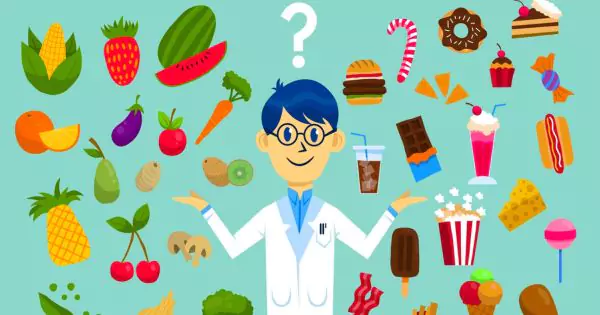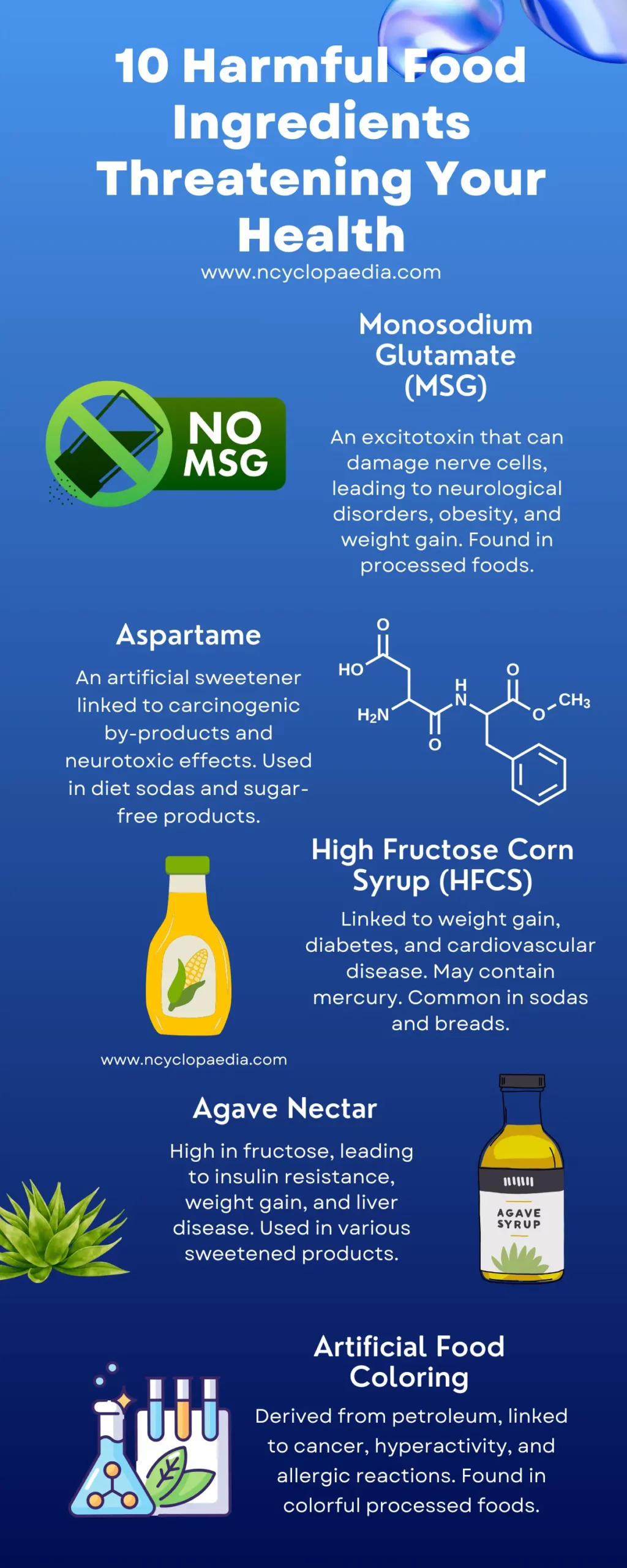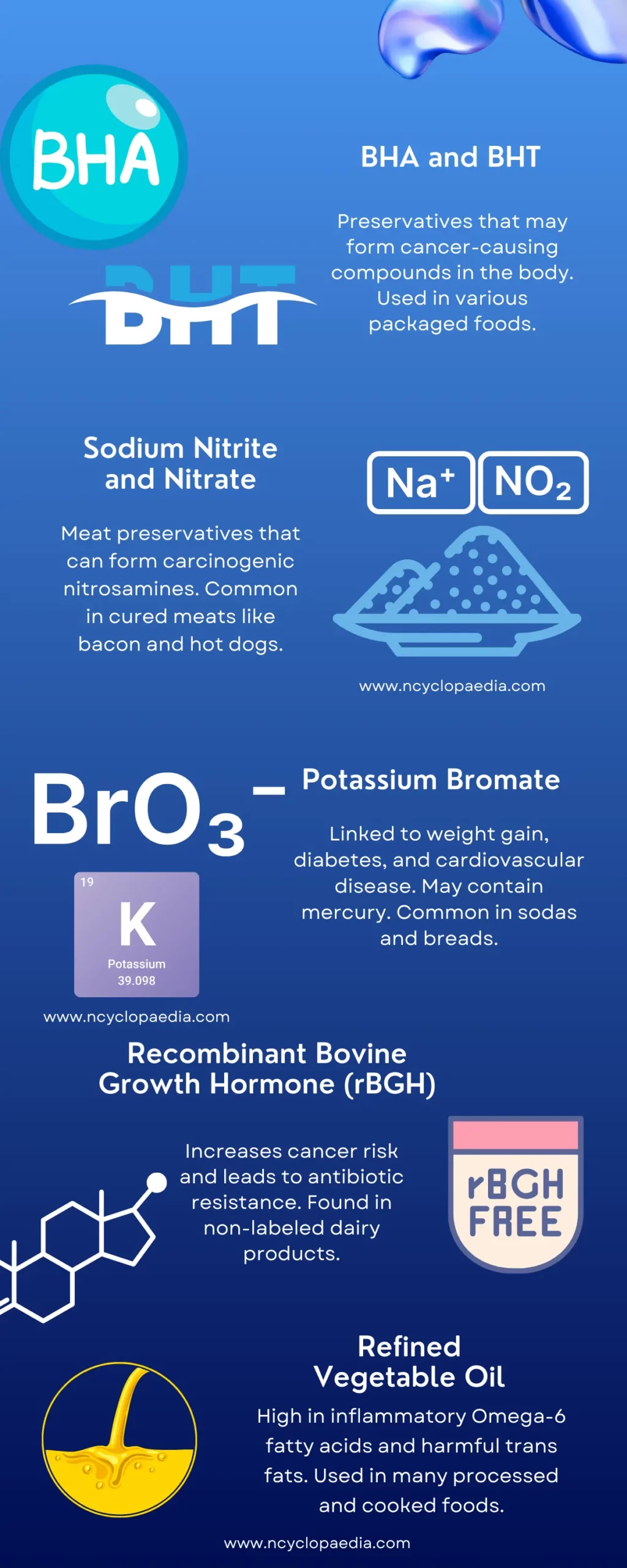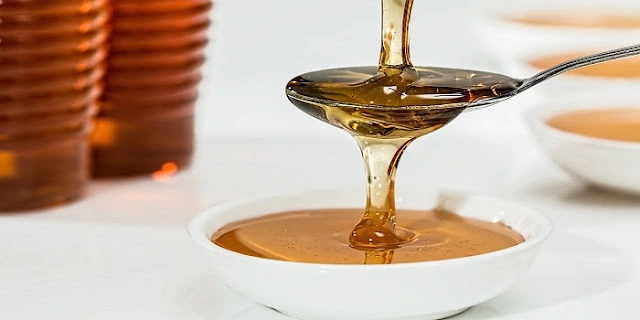
Discover the 10 worst food ingredients for your health in this insightful article. Learn about the dangers of MSG, aspartame, HFCS, agave nectar, artificial food coloring, BHA/BHT, sodium nitrites/nitrates, potassium bromate, rBGH, and refined vegetable oil, and how they impact your well-being. Make informed dietary choices for a healthier lifestyle.
In today’s fast-paced world, convenience often trumps quality, especially when it comes to our diet. Processed and packaged foods have become a staple in many households, but they often contain harmful ingredients that can negatively impact our health. Here’s a detailed look at the top 10 worst food ingredients and why you should consider avoiding them.
1. Monosodium Glutamate (MSG)
Monosodium Glutamate, commonly known as MSG, is a flavor enhancer prevalent in processed foods like salad dressings, canned meats, and flavored crackers. Despite its popularity, MSG is an excitotoxin, which means it can overstimulate and damage nerve cells, potentially leading to neurological disorders and contributing to obesity and weight gain.
2. Aspartame
Aspartame, a widely used artificial sweetener, is found in diet sodas, sugar-free gum, and yogurts. Its consumption is linked to carcinogenic by-products and neurotoxic effects such as headaches and dizziness. The risks associated with aspartame highlight the importance of checking labels, especially on diet and sugar-free products.
3. High Fructose Corn Syrup (HFCS)
HFCS, a common sweetener in sodas, breads, and condiments, is associated with a range of health issues. It has been linked to weight gain, diabetes, and cardiovascular disease. Alarmingly, some HFCS contains mercury, a potent neurotoxin, further underscoring the risks of consuming products with this ingredient.
4. Agave Nectar
Often marketed as a healthy sweetener, agave nectar is actually high in fructose. It can contribute to insulin resistance, weight gain, and even liver disease. Found in ice cream, energy bars, and sauces, agave nectar is an ingredient best consumed sparingly.
5. Artificial Food Coloring
Artificial food colorings, derived from petroleum, are found in a variety of products including candies, baked goods, and processed meats. These additives have been linked to cancer, hyperactivity, and allergy-like reactions, making them a cause for concern, especially in children’s diets.
6. BHA and BHT
Butylated hydroxyanisole (BHA) and butylated hydrozyttoluene (BHT) are preservatives that may form cancer-causing compounds in the body. They are commonly used in cereals, chewing gum, and potato chips. The potential carcinogenic effects of these additives warrant caution and vigilance.
7. Sodium Nitrite and Sodium Nitrate
Used to preserve meat, sodium nitrite, and sodium nitrate can form carcinogenic nitrosamines, particularly at high temperatures. These chemicals are found in cured meats like bacon and hot dogs, highlighting the risks of consuming processed meats.
8. Potassium Bromate
Potassium Bromate, an additive used to increase the volume of breads, is linked to cancer and endocrine disruption. Though it’s present in many commercial baked goods, the health risks associated with this ingredient are significant.
9. Recombinant Bovine Growth Hormone (rBGH)
rBGH, used in dairy cows to boost milk production, increases the risk of cancer and leads to antibiotic resistance. It’s often found in dairy products that are not specifically labeled as rBGH-free, making it a hidden danger in many dairy products.
10. Refined Vegetable Oil
Refined vegetable oils, used in many processed foods and cooking oils, are high in inflammatory Omega-6 fatty acids and can contain harmful trans fats. The processing of these oils often involves chemicals and high temperatures, which can lead to health issues like heart disease and some cancers.


When it comes to safeguarding your health against harmful food ingredients, here are some key precautions to consider:
- Read Labels Carefully: Always check the ingredient list on food packages. Look out for harmful additives like MSG, aspartame, or high fructose corn syrup. The fewer the ingredients and the more recognizable they are, the better.
- Opt for Whole Foods: Focus on fresh fruits, vegetables, whole grains, and lean proteins. Whole foods are less likely to contain harmful additives.
- Reduce Processed Foods: Processed and packaged foods are more likely to contain unhealthy ingredients. Minimize their consumption as much as possible.
- Choose Organic When Possible: Organic foods are less likely to contain synthetic additives, pesticides, and hormones.
- Cook at Home: Preparing meals at home gives you control over what goes into your food. You can avoid unhealthy ingredients and opt for healthier alternatives.
- Be Wary of ‘Diet’ and ‘Low-Fat’ Labels: These products often contain artificial sweeteners like aspartame or other harmful additives to compensate for reduced fat or sugar.
- Avoid Artificial Colors and Preservatives: These are common in candies, baked goods, and sodas. Look for natural color sources and foods with minimal preservatives.
- Limit Intake of Refined Oils: Use healthier oil options like olive oil or coconut oil instead of refined vegetable oils.
- Consume Dairy Wisely: If possible, choose dairy products that are free from rBGH and rBST.
- Educate Yourself: Stay informed about food additives and their effects on health. Research and knowledge are powerful tools for making healthy choices.
By following these precautions, you can significantly reduce your exposure to harmful food ingredients and support your overall health and well-being.
Conclusion
Being aware of these harmful ingredients is the first step toward making healthier dietary choices. Opting for whole, unprocessed foods and carefully reading labels can significantly reduce your exposure to these dangerous additives. Remember, what we consume directly impacts our health, so choose wisely for a healthier future.
Featured Image: Freepik

























































































































